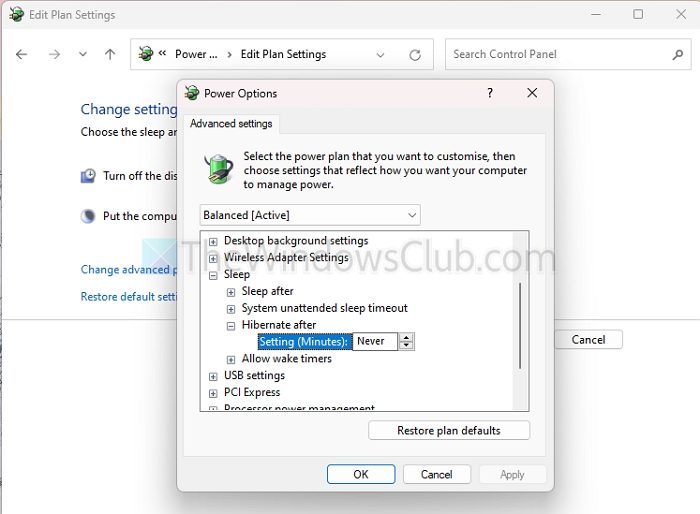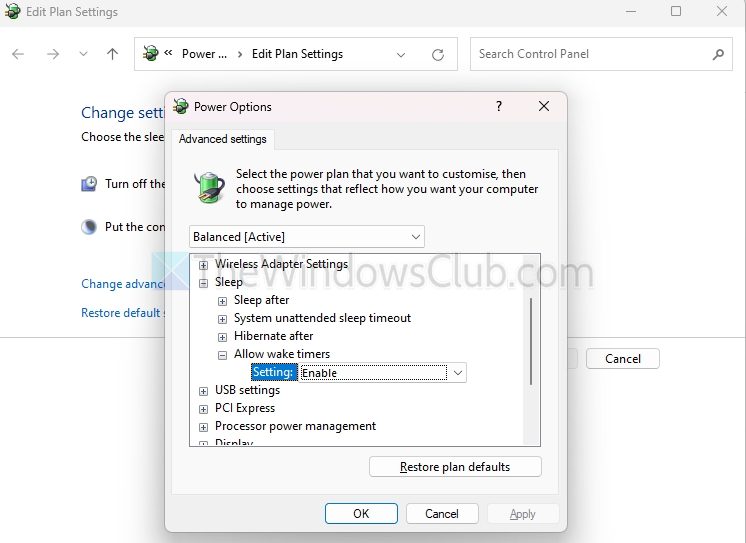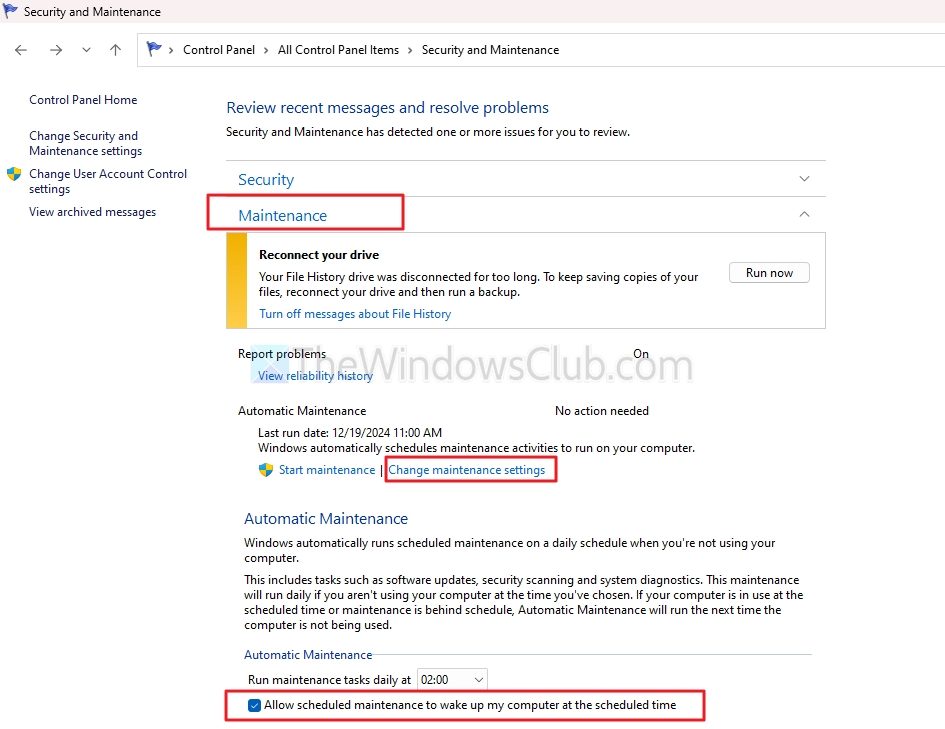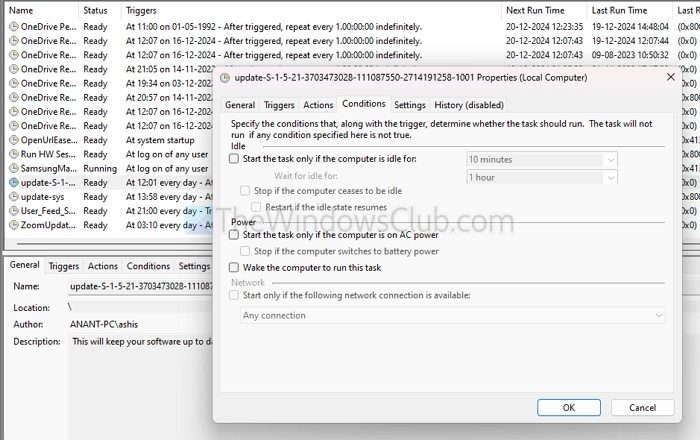If your Windows wakes up at night due to an ACPI Wake Alarm despite disabling all visible settings related to wake timers, you’re not alone. Here’s a detailed guide based on extensive troubleshooting and research to help you resolve the issue.

Fix ACPI wake alarm does not disable on Windows 11/10
If the ACPI wake alarm is not disabled and your Windows 11/10 keeps waking up, use the following suggestions to fix the issue:.
- Adjust hibernate settings
- BIOS/UEFI Configuration
- PowerShell and Command Line for wake timers
- Disable Wake Timers
- Check Security and Maintenance settings
- Task Scheduler settings
- Event Viewer analysis
Before proceeding, check if the issue persists in a clean boot state.
How to disable ACPI wake alarm
1] Adjust Hibernate Settings

The Hibernate after Sleep feature transitions Windows PCs from a sleep state to hibernation after a set duration. During this transition, the system may trigger the ACPI Wake Alarm. Changing the settings may help.
- Open Power Options via Control Panel or powercfg.cpl.
- Select your active plan, then click Change plan settings.
- Click Change advanced power settings.
- Expand the Sleep category.
- Set Hibernate after to a high value or disable it by setting it to 0 (Never).
Once done, run the powercfg /SLEEPSTUDY command on Windows Terminal, and check latest section to identify wake-up sources. The report will be available at C:\WINDOWS\system32\sleepstudy-report.html.
2] BIOS/UEFI Configuration
Your system firmware might be triggering the wake events. You can Disable Wake on RTC Alarm:
- Restart your PC and access the BIOS/UEFI setup (usually by pressing Del, F2, or F12 during boot).
- Look for settings related to ACPI or Wake on RTC Alarm.
- Disable these settings if enabled.
Read: Fix ACPI BIOS ERROR or ACPI BIOS FATAL ERROR in Windows
3] PowerShell and Command Line for wake timers
The following commands can help you uncover hidden configurations:
powercfg -qh > power_settings.txt
The above command reviews power_settings.txt for entries related to ACPI or wake timers.
To analyze Active power plan run the powercfg /getactivescheme command.
To disable any specific device for wake events, you can use powercfg -devicedisablewake "<DeviceName>".
4] Disable Wake Timers

- Go to Power Settings, and click Change Advanced Power Settings for the current plan.
- Under Sleep > Allow wake timers and choose to disable it.
You can do it for both On Battery and Plugged In states.
5] Check Security and Maintenance settings

Scheduled backup and security checks can wake up PC. It is possible that those settings are waking your PC up.
- Open Control Panel > Security and Maintenance.
- Click on Change maintenance settings under the Maintenance section.
- Please uncheck the box for Allow scheduled maintenance to wake up my computer at the scheduled time.
- Save changes.
6] Task Scheduler settings

Windows has scheduled tasks that could wake the computer if settings are applied. You can check this for any existing task by going to its properties.
- Open any task and select properties.
- Switch to the Conditions tab, and then uncheck the “Wake the computer to run this task”
7] Event Viewer analysis
Check the Event Viewer under Windows Logs > System for detailed wake source entries. If the PC wakes from sleep or hibernation, typically at a consistent time, the Event Viewer reports the Wake Source as Device—ACPI Wake Alarm.
I hope this helps.
Why does my computer wake up at night despite disabling wake timers?
This issue often relates to ACPI (Advanced Configuration and Power Interface) wake alarms, which allow specific hardware or firmware events to wake your PC. Even if wake timers are disabled in the Power Management settings, certain low-level system processes or BIOS/UEFI configurations can override these settings.
Read: Computer automatically waking up from Sleep
How can I fully disable ACPI wake alarms to prevent unwanted wake-ups?
Chances are you can do it, but then you will need to go through all the places which are related to ACPI wake alarms. That includes tasks, bios, power settings, backups and anything else that can wake your PC from sleep or hibernation.
Leave a Reply